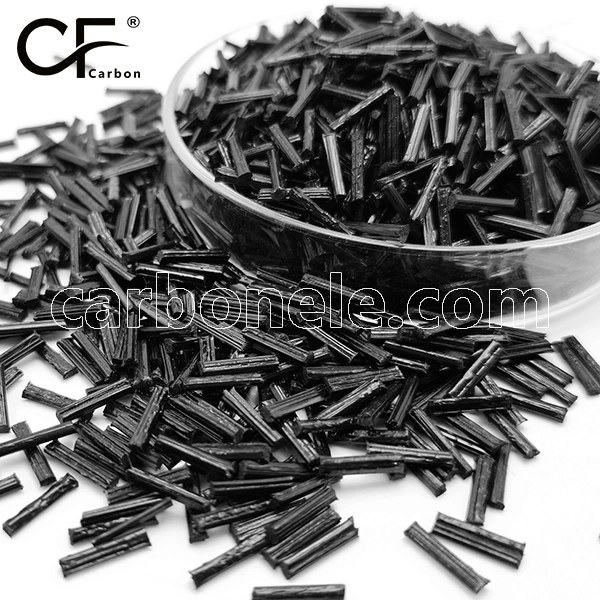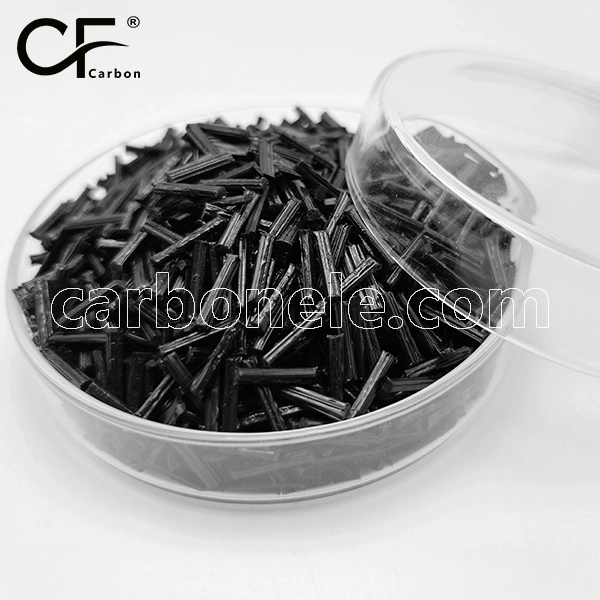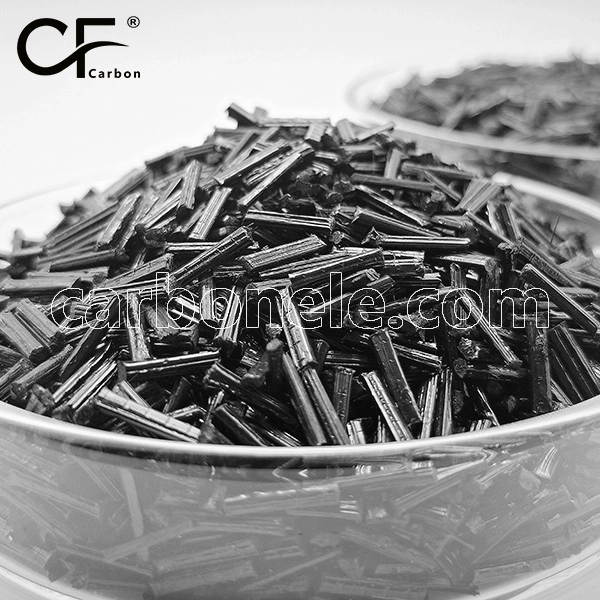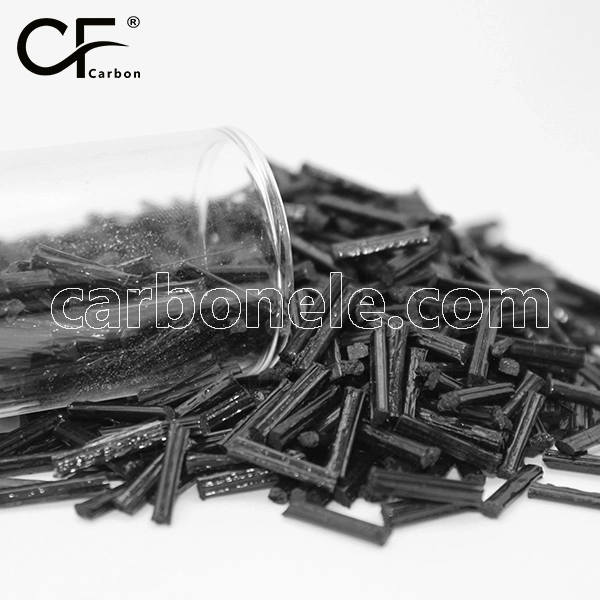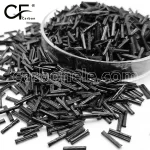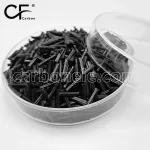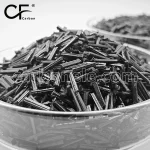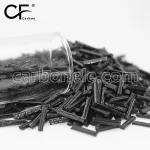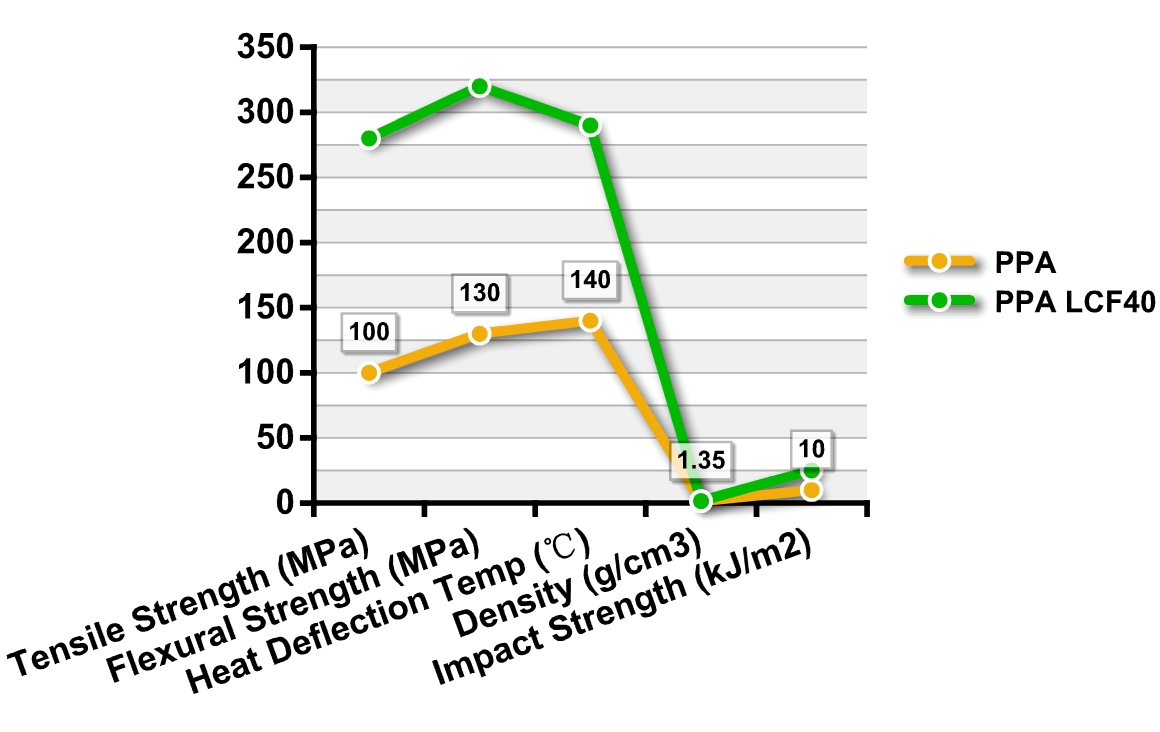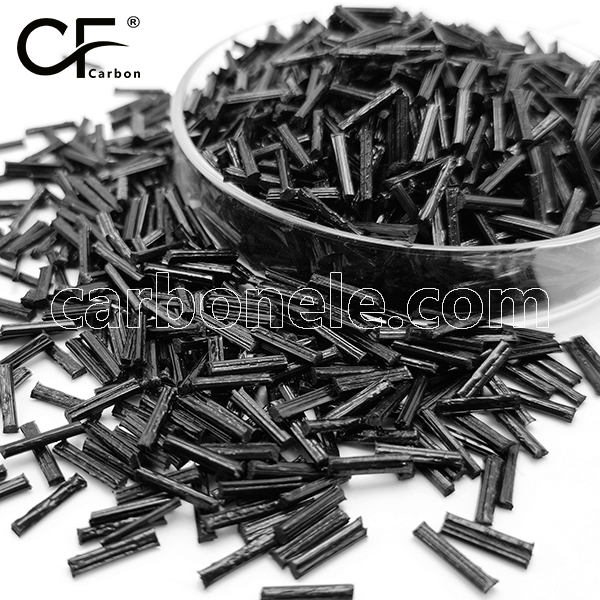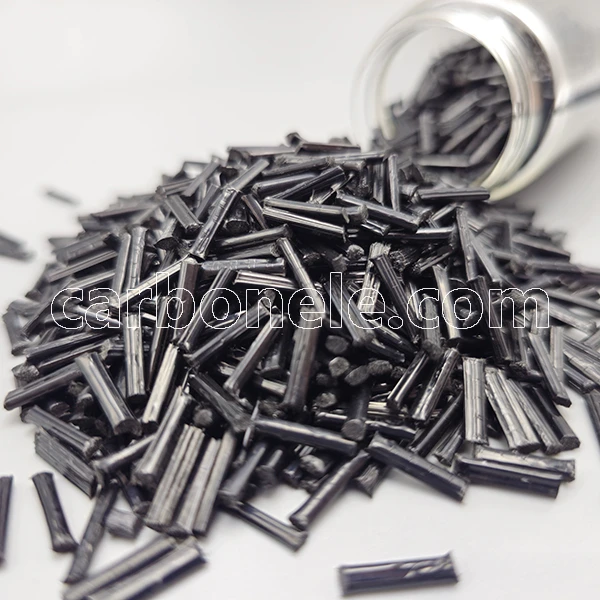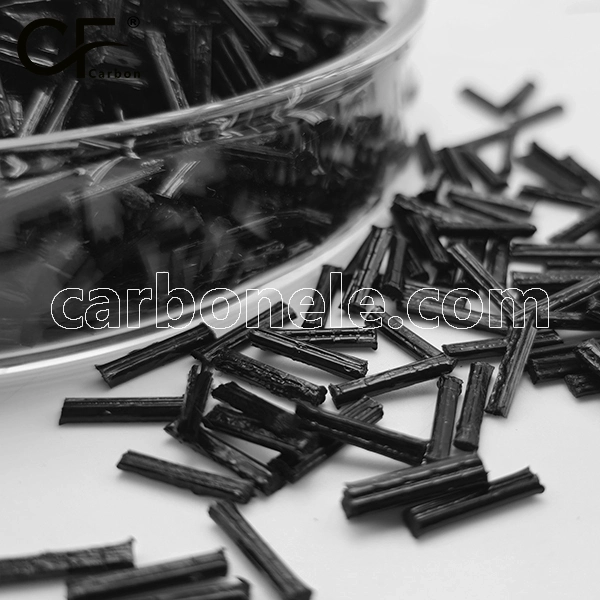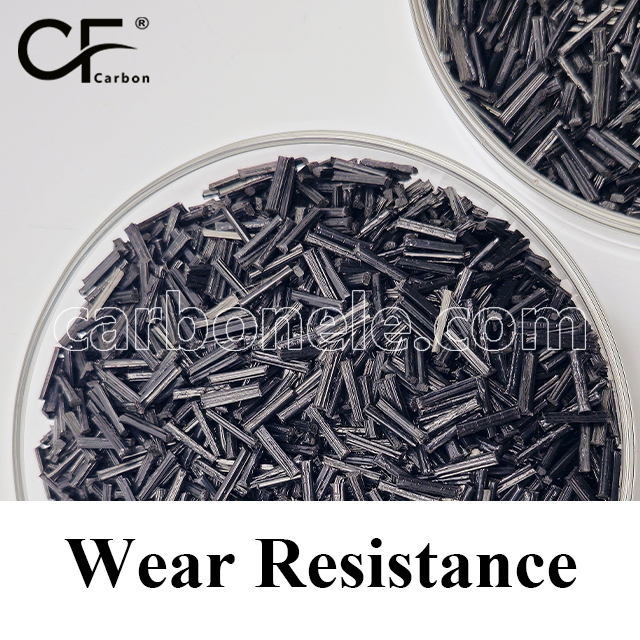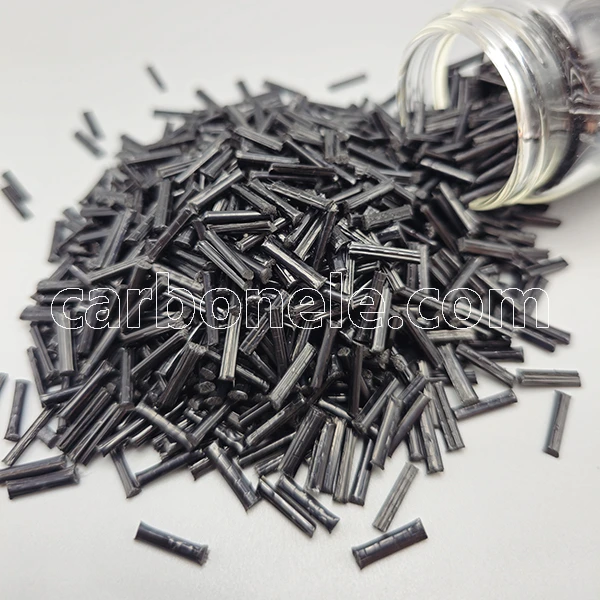
High Strength-to-weight Ratio LCF40-PPA for Golf Shafts
- Manufacturer: Carbon New Material
- OEM/ODM: Acceptable
- Color: Black
- Free Samples: ≤25kgs
- MOQ: 100kgs
- Port: Xiamen
- Model: PPA-LCF-BCA4
- Fillers: Long carbon fiber
- Packaging: 25kg/bag
1. LCF40-PPA offers extremely high tensile strength, enabling it to withstand significant forces.
2. Features a low density, which effectively reduces the overall weight of golf shafts.
3. Demonstrates good fatigue resistance, ensuring long – term durability in use.
4. Boasts excellent flexibility, allowing for smooth and controlled swings.
5. Has a high modulus, providing stability and precise performance during play.
6. Shows notable corrosion resistance, maintaining its quality in various environmental conditions.
| Category | Property | Value | Unit |
|---|---|---|---|
| Basic Properties | Material Type | Polyphthalamide | – |
| Reinforcement Material | 40% Long Glass Fiber | – | |
| Density | 1.52-1.56 | g/cm³ | |
| Mechanical Properties | Tensile Strength | 180-220 | MPa |
| Flexural Strength | 250-300 | MPa | |
| Flexural Modulus | 10,000-12,000 | MPa | |
| Impact Strength (Notched) | 10-15 | kJ/m² | |
| Impact Strength (Unnotched) | 40-60 | kJ/m² | |
| Elongation at Break | 2-4 | % | |
| Thermal Properties | Heat Deflection Temperature (1.82 MPa) | 280-290 | °C |
| Continuous Use Temperature | 150-170 | °C | |
| Melting Point | 310-320 | °C | |
| Coefficient of Thermal Expansion | 2-3 | × 10⁻⁵ /°C | |
| Electrical Properties | Dielectric Strength | 20-25 | kV/mm |
| Volume Resistivity | 10¹⁴-10¹⁵ | Ω·cm | |
| Dielectric Constant (1 MHz) | 3.5-4.0 | – | |
| Dissipation Factor (1 MHz) | 0.01-0.02 | – | |
| Chemical Properties | Chemical Resistance | Good | – |
| Hydrolysis Resistance | Excellent | – | |
| Acid Resistance | Moderate | – | |
| Alkali Resistance | Moderate | – | |
| Processing Properties | Molding Temperature | 300-330 | °C |
| Mold Temperature | 120-150 | °C | |
| Drying Conditions | 120°C for 4-6 hours | – | |
| Applications | Automotive Industry | Engine components, sensor housings, connectors | – |
| Electrical & Electronics | Relays, switches, sockets | – | |
| Industrial Equipment | Pump valves, gears, bearings | – | |
| Advantages | High mechanical strength and rigidity | – | – |
| Excellent thermal stability and chemical resistance | – | – | |
| Good electrical insulation properties | – | – | |
| Low moisture absorption | – | – | |
| Disadvantages | High processing temperature | – | – |
| Limited resistance to strong acids and alkalis | – | – |
Notes:
- Properties without units are marked as “-” in the “Unit” column.
- The above values are typical and may vary depending on specific grades and processing conditions.
PPA & PPA LCF40
The performance comparison between PPA resin and PPA LCF40 composite shows that the PPA LCF40 composite outperforms the PPA resin in most aspects. The PPA LCF40 composite has a tensile strength of 280 MPa compared to 100 MPa for the PPA resin. Its flexural strength is 320 MPa versus 130 MPa of the PPA resin. The heat deflection temperature of the PPA LCF40 composite is 290 °C, much higher than the 140 °C of the PPA resin. The density of the PPA LCF40 composite is 1.55 g/cm³ compared to 1.35 g/cm³ of the PPA resin. Additionally, the impact strength of the PPA LCF40 composite is 25 kJ/m², which is higher than the 10 kJ/m² of the PPA resin.
Get to Know Carbon Fibers
The table presents key performance data of carbon fiber grades. T300, with a tensile strength of 3530 MPa and a tensile modulus of 230 GPa, has a relatively low tensile elongation at break of 1.5% and a body density of 1.76 g/cm³. As the grade increases, for example, T700S shows an enhanced tensile strength of 4900 MPa compared to T300, while maintaining the same tensile modulus but with a higher elongation at break of 2.1%. T800S and T1000G both have a tensile modulus of 294 GPa, and their tensile strengths are 5880 MPa and 6370 MPa respectively. T1100G stands out with the highest tensile strength of 7000 MPa and a tensile modulus of 324 GPa. Generally, with the increase in product grade, the tensile strength and modulus tend to rise, while the density remains relatively stable around 1.8 g/cm³.
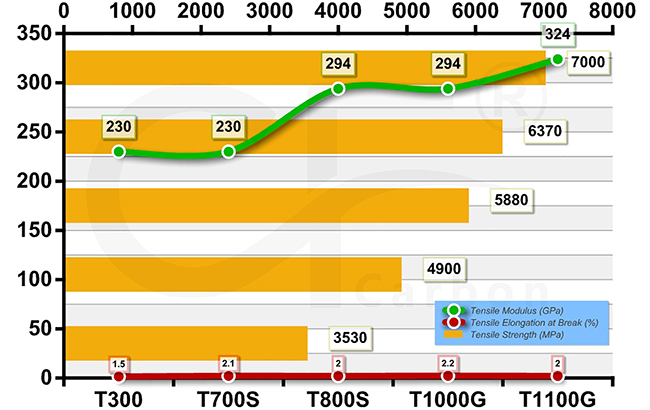
Why Choose Us?
Carbon (Xiamen) New Material Co., Ltd. stands out for its expertise in CFRTPs. We possess cutting-edge tech, ensuring top-notch product quality. Our dedicated team offers personalized service and strict quality checks. Choose us for reliable materials and a seamless cooperation experience.
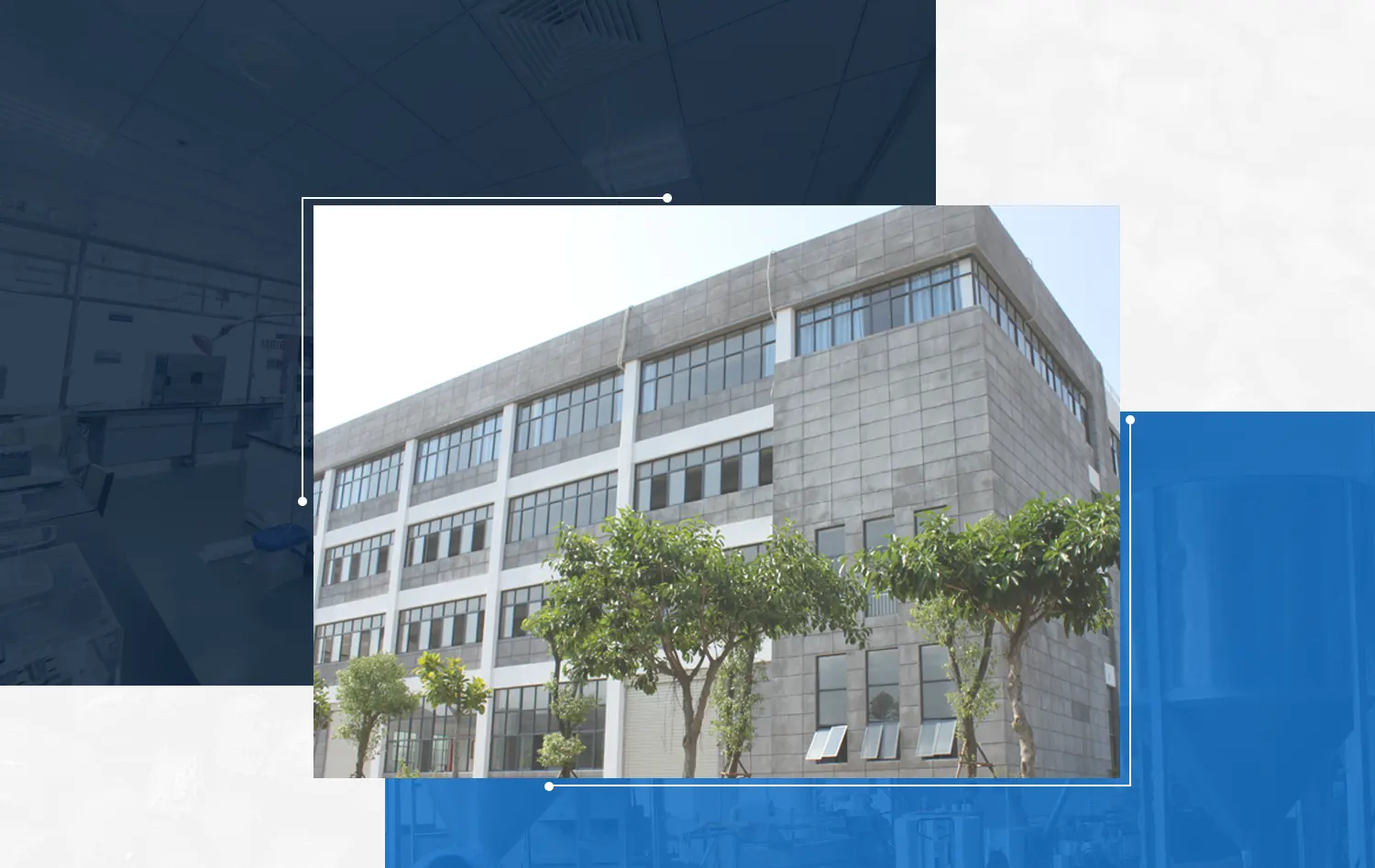
How to Buy?
If you want to obtain information such as product specifications, performance, and price, choose a suitable product according to your own needs. Meanwhile, you can ask the manufacturer to provide samples for testing to ensure that the material meets your usage requirements. If you are interested in purchasing this composite material, please contact the manufacturer Carbon (Xiamen) New Material directly.
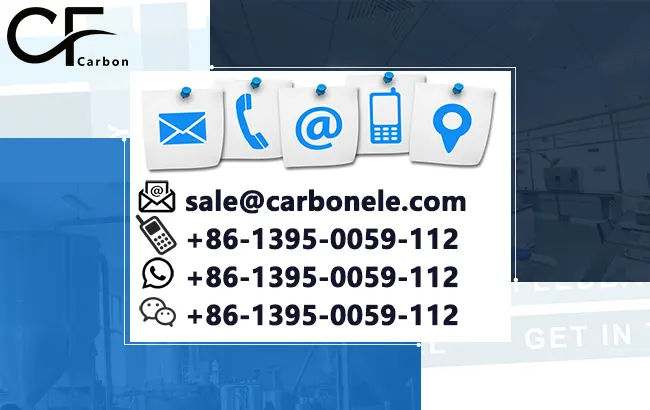
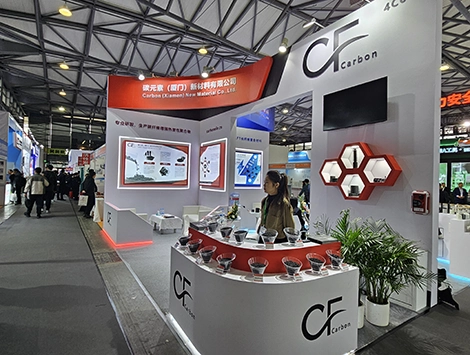

Frequently Asked Questions
Carbon (Xiamen) New Material Co., Ltd. aims to provide buyers with "one-stop" worry-free high-quality services. Here you can find all information about carbon fiber engineering plastics. If you still have questions, please send us an email for consultation!
-
How can I contact the manufacturer of a product that interests me?
When you find a product you are interested in, you can contact the manufacturer directly by sending an email and we will get back to you as soon as possible.
-
How do I find the products that interest me?
All you need to do is enter the keyword, product name in the search window and press the Enter key on your keyboard. Your search results page will then be displayed. You can also search within the product category pages on the home page. Each category is divided into subcategories, allowing you to refine your search and find products that interest you.
-
Where will I find a buying guide?
Please contact our after-sales service directly and we will provide you with a comprehensive operating guide.
-
What are CF Reinforced Thermoplastic Composites?
CF Reinforced Thermoplastic Composites are materials where carbon fibers are incorporated into a thermoplastic matrix. They combine the strength and stiffness of carbon fibers with the processability and recyclability of thermoplastics. For instance, they are used in automotive parts like bumper beams.
-
What are the benefits of CF Reinforced Thermoplastic Composites over traditional composites?
The key benefits include faster production cycles, easier recyclability, and better impact resistance. They also offer design flexibility. An example is in the manufacturing of consumer electronics casings where complex shapes can be achieved more easily.
-
How are CF Reinforced Thermoplastic Composites processed?
Common processing methods include injection molding, extrusion, and compression molding. Injection molding is widely used for mass production. For example, in the production of small components for the medical industry.
-
What industries use CF Reinforced Thermoplastic Composites?
They are utilized in aerospace, automotive, medical, and sports equipment industries. In aerospace, they can be found in interior components. In the medical field, they might be used in prosthetics.
-
How does the carbon fiber content affect the properties of the composites?
Higher carbon fiber content generally leads to increased strength and stiffness but may reduce ductility. A moderate content is often balanced for specific applications. For example, a higher content might be preferred in structural parts of a race car.
-
What are the challenges in using CF Reinforced Thermoplastic Composites?
Challenges include higher material costs, complex processing equipment requirements, and ensuring uniform fiber dispersion. Issues with adhesion between the fibers and the matrix can also arise. An example is in achieving consistent quality in large-scale production.








